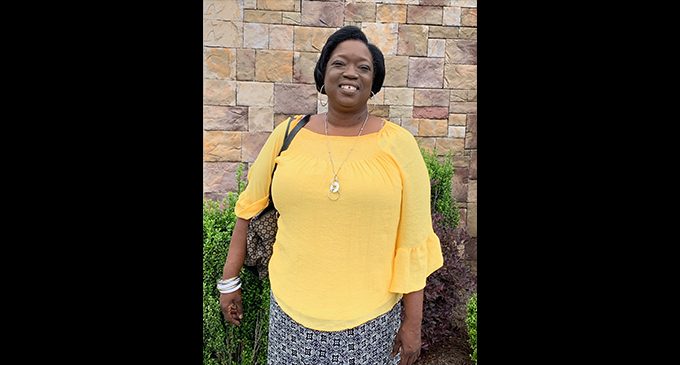Hope for kidney transplant offers woman a chance for a normal life
Mary Anderson

By Monica Fatorma
The critical importance of the kidney, the organ that removes waste from the body, is sometimes taken for granted. Some people are born with just one kidney, some people lose a kidney to disease, but they go on to live normal lives. This may mislead people that the kidney may not be as crucial to survival as other organs. Dialysis, which helps mimic kidney function, is one treatment option, but when that is not enough, a healthcare provider may recommend a kidney transplant.
A couple years ago, Mary Anderson was given this very news. Once she started on dialysis in 2015, she could no longer work full time. Mary’s mom had also been on dialysis and Mary saw firsthand how difficult her fight was. Because of this and because of her healthcare background, she was apprehensive about quickly accepting the medical advice to go on dialysis, but decided to take the steps needed to get better.
It was hard for her to initially find the right healthcare provider that was in tune with her and she ended up talking to two nephrologists. Finally, after speaking to a cardiologist that recommended another nephrologist, she felt she had found a doctor with her best interests at heart. He quickly got her on hemodialysis and she started feeling better almost immediately. Eventually, however, Mary’s kidney function decreased to the point that she was told she would need a kidney transplant.
The process for finding a kidney donor is difficult and can be discouraging. Still, Mary continues to push forward and is hopeful saying, “This is not the path I would’ve chosen for myself, but God is ordering my steps.” She said she always heard this growing up in church, but expressed how people once tested usually do not feel the same about God’s influence in their lives. She has full faith that He is ordering her steps and if he chose this path for her, she will be okay.
In a world where chronic heart disease, blood pressure, and diabetes are on the rise, most individuals focus on heart health. Countless tools are on the market to assist in tracking heart diagnostics, but there are not too many tools to help assess kidney function without seeking professional help. Yet, these diseases are intertwined with kidney function. The kidney not only removes waste, but also aids in balancing electrolytes in the bloodstream which directly impact heart function and blood pressure. These imbalances occur with high blood pressure and diabetes and can lead to kidney failure.
In 2015 it was reported that kidney disease was the ninth leading cause of death in the U.S. It is estimated that 31 million people in the U.S. suffer from this disease, with African Americans as much as four times more likely to develop this disease than any other race. A big contributor to the racial disparity is lack of access to health care. Fortunately, with recent advances to medical technology, there is hope.
When asked what advice she would give other people also frustrated with healthcare professionals and the healthcare industry. Mary said, “If you don’t get the satisfaction you think you need, always get a second opinion. No one knows your body more than you. Get with a doctor that has lots of passion and won’t push you off as just another patient.”
Every organ and part of the body has a purpose and just as there is a purpose and reason for everything within us, there is a purpose and reason for everything around us. Anyone who is faced with this news needs to remember, as Mary put it, “You know your body.” If you are in this type of situation, find a healthcare provider that does not see you as just a statistic, always ask questions, and most of all, stay hopeful.
To help Mary or to be considered as a donor match, please contact her living donor coordinator, Colleen Sheehan at (336) 713-5675. You may also contact her by email at csheeha@wakehealth.edu.









